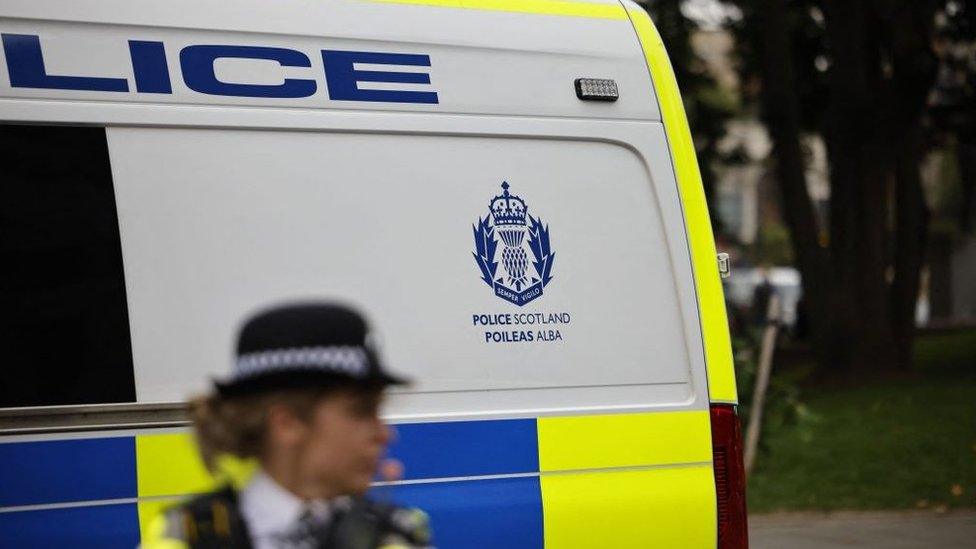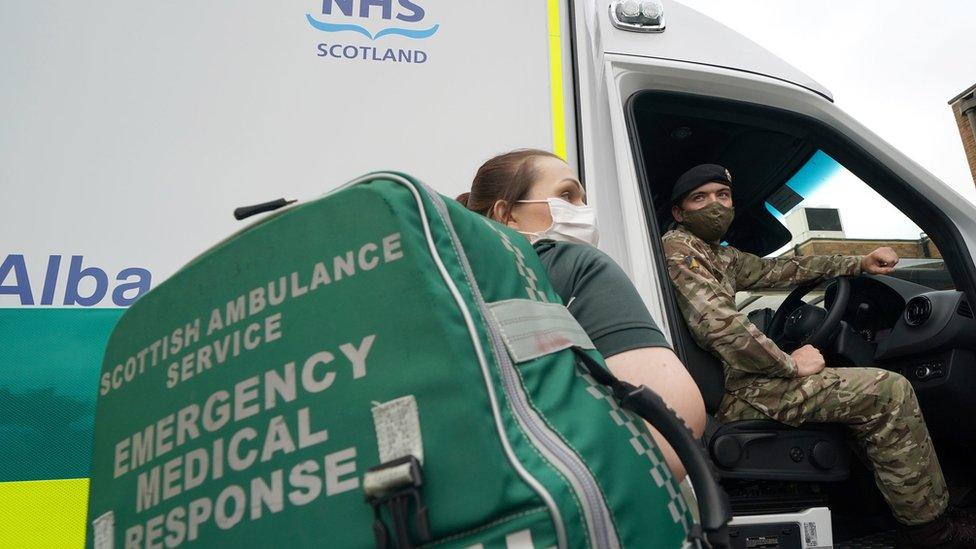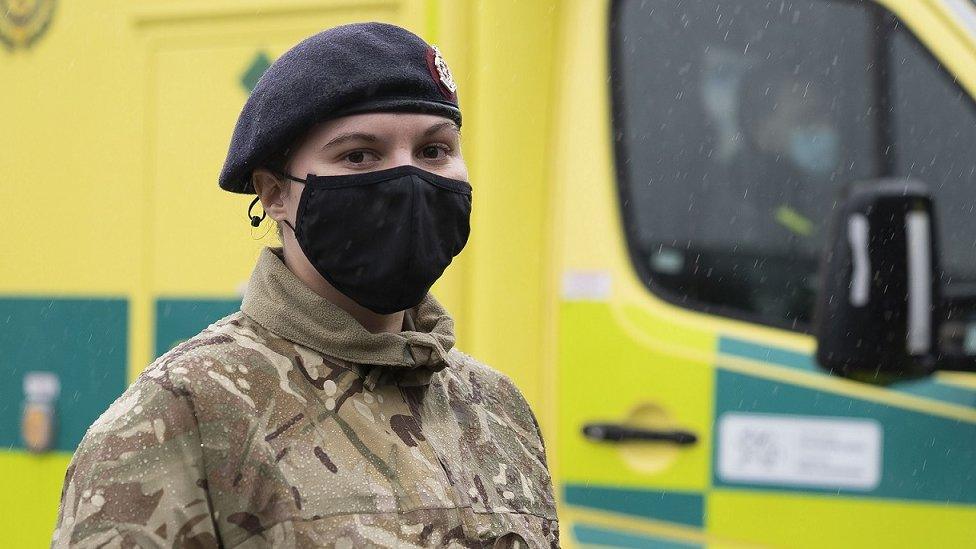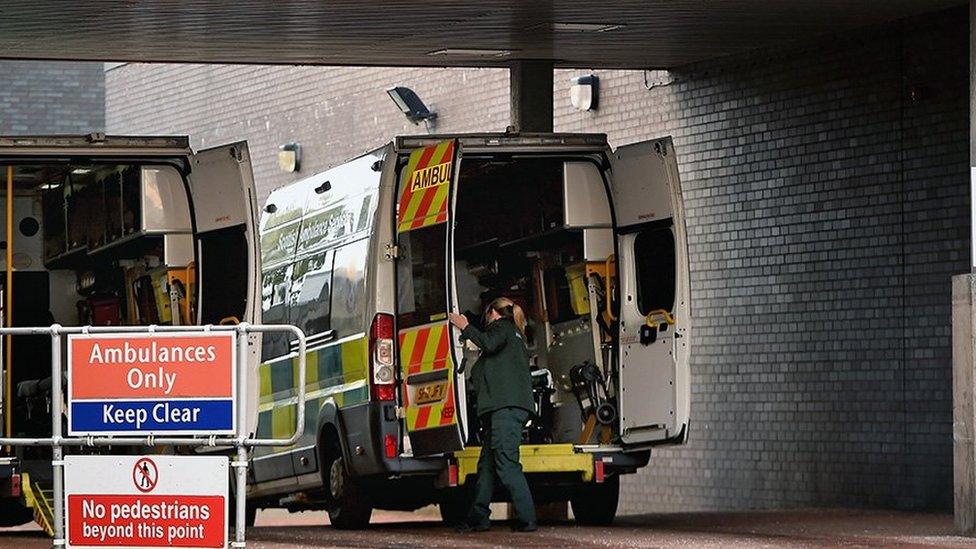Patients in Scotland taken to hospital 'in back of police cars'
- Published

Police officers have "routinely" taken people to hospital in the back of police vehicles because an ambulance was unavailable, it has been claimed.
The Scottish Police Federation (SPF) said officers were having to help relieve strain on under-pressure ambulance crews.
It has provided records to Scottish social affairs magazine, 1919,, external on about 30 incidents in the past three months.
The Scottish Ambulance Service (SAS) has denied the claims.
Last month, the military was called in to help drive ambulances in a bid to ease the "unprecedented" pressure on the NHS.
SAS chief executive Pauline Howie said at the time the impact of Covid had placed the service at its "highest level of escalation".
The Scottish Police Federation said police reports show that officers stepped in to help when:
A man who was bleeding from his inner ear and head after an assault and faced a three-hour wait for an ambulance
An older person who was bleeding heavily after a dog bite but was told there was no ambulance available.
And officers had to take a man to hospital after a suicide attempt when no ambulance was allocated.
Another report records that a single paramedic dealing with an injured man asked police to drive his vehicles so he could continue treating the patient en route to hospital.
And in another incident a family concerned about a relative contacted their GP and ambulance service, but were told to call the police instead. Officers took him to hospital.
Gordon Forsyth, of the SPF, said: "Cops out there are taking people to hospital in the back of police cars simply because the ambulance is going to be hours, or there isn't anybody suitable to leave the person with and stand down.
"I've got a list of 30-odd examples, various things where the cops have been sent to calls because an ambulance hasn't been available, or having to wait for a significant period of time for an ambulance to get there."

The military was asked to help the Scottish Ambulance Service last month
In a statement to 1919, the ambulance service said police officers were only requested to attend cardiac arrest calls as a first response in the north of Scotland and they were immediately backed up by an ambulance resource.
SAS said: "In no other situation would police officers attend ambulance 999 calls or be asked to transport patients to hospital".
In a statement to BBC Scotland, Police Scotland referred to comments made by Chief Constable Iain Livingstone to a meeting of the Scottish Police Authority Board last week.
Mr Livingstone said policing was "so often the service of first and last resort" and officers would "never step away from those who are in crisis".
He said: "I recognise the pressures which exist across many other services, agencies and sectors. We know that when the health service, local authorities and other key partners come under significant strain, demand is diverted to policing.
"Additionally, delays in service provision by other agencies also mean officers and staff can spend longer dealing with an incident than would otherwise be the case.
"Covid is still with us and the global pandemic continues to put the National Health Service under critical pressure."
- Published21 September 2021

- Published17 September 2021
